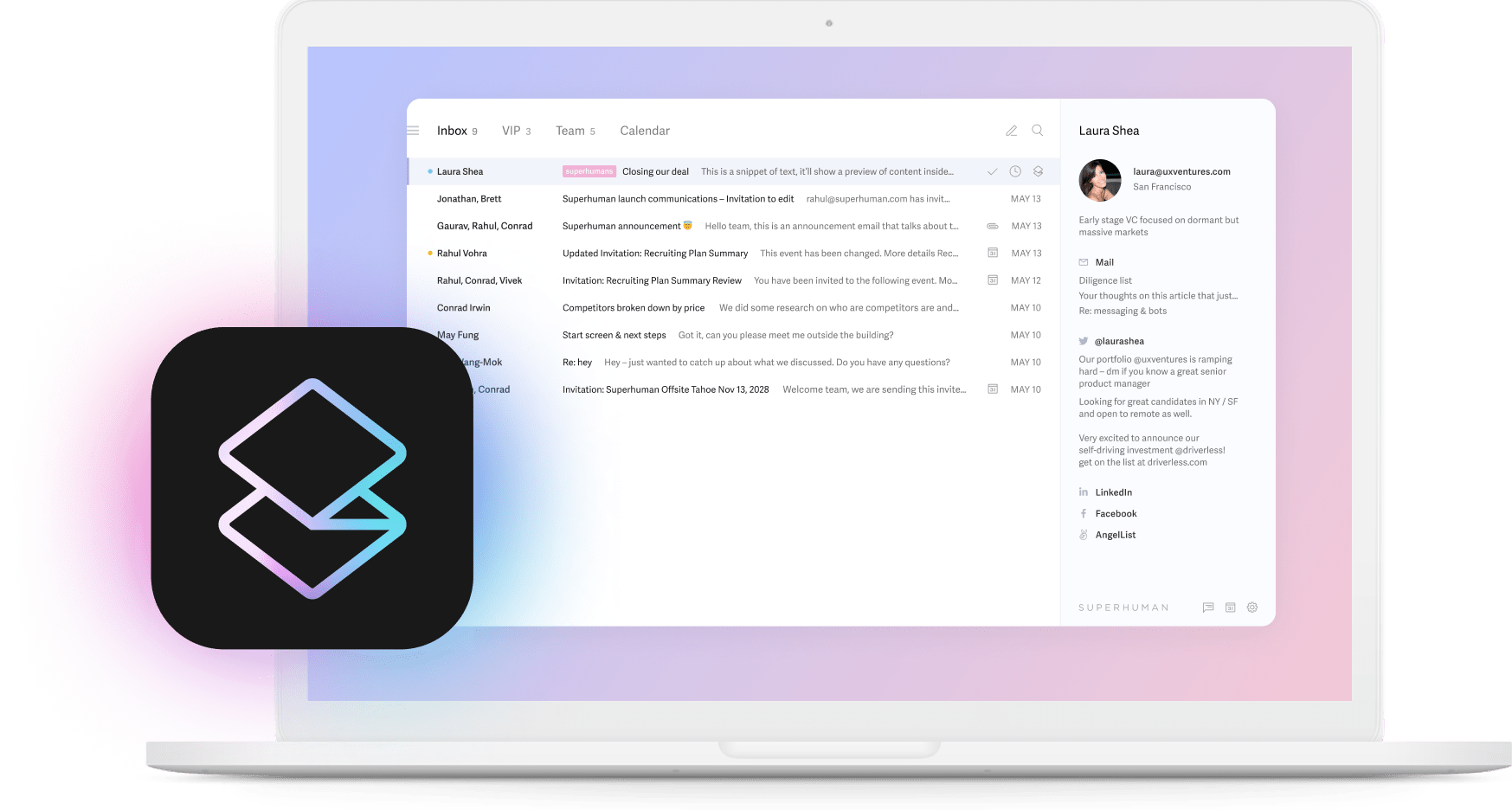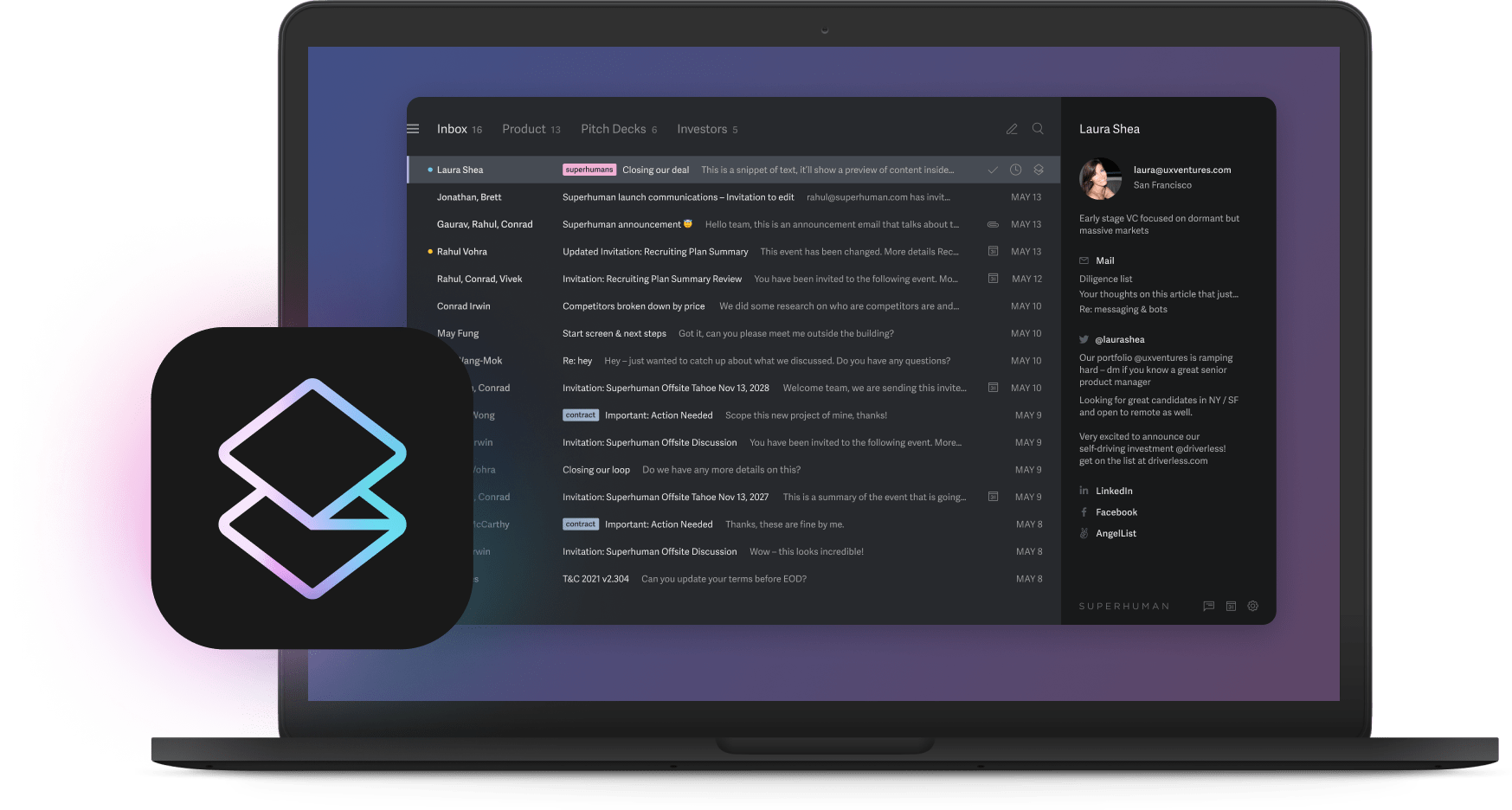
The average worker now gets over 120 emails every day. That's a lot to handle while trying to do your actual job. How much time did you spend in your inbox yesterday? What could you have accomplished with those hours back? Thankfully, an intelligent email assistant can help. These AI tools use smart technology to make email management much easier. The AI email assistant market will grow to $4.52 billion by 2029, growing 21% each year. About 75% of professionals want to use AI for writing emails. These tools have evolved beyond simple helpers into genuine business assets that save time and improve communication.
How email evolved
Email has come a long way since its birth in the 1970s. What started as a basic messaging system has become the foundation of how we communicate at work. Regular email programs like Gmail and Outlook offer basic functions but struggle to handle today's communication needs.
The limits of regular email become clear in fast-moving companies. Leaders face constant pressure to stay responsive, grab time-sensitive opportunities, and keep teams working together smoothly. Before: spending Sunday night catching up on missed messages, feeling perpetually behind. After: walking into Monday with a perfectly triaged inbox ready for action. Standard email creates delays, breaks down communication, and leads to missed follow-ups that can hurt business results.
Intelligent email assistants solve these problems by using AI to handle routine tasks, highlight important messages, and improve writing quality. These tools can reduce email writing time by up to 75%, turning an 11-minute job into a 2-3 minute task. When multiplied across teams, this efficiency creates huge productivity gains and competitive edges.
Core features of intelligent email assistants in 2025
AI writing assistance
Today's intelligent email assistants offer amazing writing help that goes beyond simple word suggestions. These tools can write complete emails from brief instructions while keeping your personal writing style. They learn from your past emails to ensure messages sound like you wrote them.
The best AI writing tools can craft better messages by improving tone, clarity, and structure. They also summarize long email chains into short action points so you can understand and respond faster.
Intelligent organization
Email overload often happens because of poor sorting and prioritization. Advanced email assistants fix this through smart categorization that automatically organizes incoming messages.
Features like Split Inbox create separate views for different types of emails, making sure high-priority messages from colleagues, leaders, and important tools get immediate attention. Smart bundling groups related conversations, reducing inbox clutter and creating logical groups that make batch processing easy.
Workflow automation
Repetitive email tasks eat up valuable time you could spend on more important work. Intelligent email assistants automate these processes through:
- Scheduled sending when recipients are most likely to read
- Automatic follow-up reminders
- Templates for consistent messaging
- Meeting scheduling without back-and-forth emails
- Task extraction that connects with project management tools
These automations free your mind from routine email management so you can focus on meaningful work.
Communication insights
Beyond basic email functions, modern assistants provide valuable insights that improve relationship management. Read notifications show exactly when and where an email was opened, helping you time your follow-ups better. Social insights show relevant background about your contacts, making personalized outreach easier. These capabilities transform email from a simple message tool into a relationship-building platform.
Best intelligent email assistants for productivity
1. Superhuman
Superhuman turns your chaotic inbox into an organized command center with its comprehensive AI tools and productivity features. Teams save 4 hours per person weekly, respond 12 hours faster, and handle twice as many emails in the same time.
Key features include:
- Write with AI: Turns quick ideas into complete emails that match your personal style
- Auto Labels: Sorts incoming messages into actionable categories
- Split Inbox: Creates separate views for different email types
- Ask AI: Gives instant answers about your emails without manual searching
- Auto Drafts: Creates follow-up emails and response drafts automatically
Superhuman's keyboard shortcuts and speed optimizations make it especially valuable for leaders at fast-paced companies. The platform costs $30/user/month.
Try Superhuman2. SaneBox
SaneBox tackles email overload through smart filtering and prioritization. Its AI figures out which emails need immediate attention and which can wait, moving less important messages to designated folders.
Key features include automatic unsubscribe tools, smart reminders that bring back unanswered emails, and a Do Not Disturb mode that stops email notifications during focused work. Plans start from $24/year.
3. Shortwave
Shortwave transforms email through smart grouping and summarization. The app bundles related messages and uses AI to turn long threads into short bullet points.
Its Focus mode removes distractions while its natural language search makes finding specific information easy. Shortwave offers a free plan with premium features from $8.50/user/month.
4. Microsoft Copilot Pro for Outlook
Microsoft Copilot Pro enhances Outlook with AI writing and analysis capabilities. The tool checks your tone and clarity to improve message effectiveness.
Its deep connection with Microsoft 365 enables smooth integration with other productivity tools. This solution requires a Microsoft 365 subscription plus $20/month for AI features.
Best intelligent email assistants for marketing and sales
5. Lavender
Lavender specializes in sales email optimization through real-time coaching. The tool analyzes message content and suggests improvements for clarity, engagement, and persuasiveness.
It customizes emails based on recipient behavior, tracks open rates and link clicks, and offers sales-focused personalization. Pricing includes a free plan with premium options from $29-$49/month.
6. Boomerang AI
Boomerang combines email scheduling with AI writing help. Its send-time optimization suggests when to send emails for maximum engagement.
A standout feature is Inbox Pause, which temporarily stops new messages from appearing to create distraction-free work periods. The tool works with Gmail and Outlook.
7. SmartWriter
SmartWriter focuses on personalized cold outreach at scale. The tool automatically researches prospects and creates customized emails based on their profiles and activities.
Its automated follow-up sequences ensure consistent contact without manual work, while CRM integrations keep data in sync across platforms.
Best intelligent email assistants for security and organization
8. Canary Mail AI
Canary Mail prioritizes security alongside AI productivity. It offers end-to-end encrypted AI writing and on-device AI processing that improves privacy by keeping sensitive data on your device.
The tool provides smart inbox organization and highlights action items within messages so important tasks don't get missed. Its thread summarization condenses conversations into key points.
9. Spike
Spike reimagines email as conversation messaging. The interface shows emails as chat-like threads, creating a more natural communication experience.
Its AI Feed summarizes unread messages, allowing quick processing of your inbox. Built-in notes and collaborative documents help team coordination without switching between apps. Pricing includes a free plan with premium features from $10/user/month.
10. Gemini for Gmail
Gemini brings Google's AI capabilities directly into Gmail. It provides contextual email summaries and enhanced replies that include real-time information.
The close integration with Google Workspace enables automatic task extraction to Calendar and smooth workflows across Google tools. Pricing is $20/user/month with Workspace or $19.99/month with Google One.
Implementing intelligent email assistants in business
How to choose the right tool
Picking an intelligent email assistant means looking at several factors:
- Primary needs: Figure out if productivity, sales help, security, or collaboration is your main priority
- Integration needs: Make sure it works with your existing tools like CRM, project management, and calendar systems
- Privacy and security: Consider how data is processed, stored, and protected, especially for sensitive emails
- Budget: Compare pricing against expected returns from time savings and better communication
Most providers offer free trials so teams can try the interface and workflow before committing.
Implementation best practices
Successfully implementing intelligent email assistants follows a straightforward approach:
- Start with one tool focused on your biggest email challenge
- Learn keyboard shortcuts and customization options
- Adjust AI settings to match your communication style
- Review AI suggestions before sending to maintain quality
- Process emails twice as fast while keeping communication quality high
Organizations should also consider training sessions to help team members get the most from the tool.
Measuring ROI and business impact
The value of intelligent email assistants shows up through measurable improvements in several areas:
- Time savings: Less time processing email and fewer hours spent on communication
- Response metrics: Faster response times and more emails answered
- Decision speed: Quicker alignment and approval processes
- Customer satisfaction: Better through more timely and effective communication
Teams using these tools report having hundreds of emails automatically archived each week and experiencing their inbox as much lighter and easier to manage.
Future trends in intelligent email assistants
The intelligent email assistant market keeps evolving quickly. Coming trends include:
- Better understanding across multiple communication channels
- Closer integration with workflow and project management tools
- More advanced personalization and relationship management
- Enhanced security features that protect sensitive information without sacrificing convenience
- Expanded analytics that provide insights into communication patterns and effectiveness
These developments will further transform email from a necessary burden into a strategic business tool that drives measurable results.
The bottom line
Intelligent email assistants have grown from simple productivity tools into essential business assets that transform how teams communicate and work together. By automating routine tasks, improving writing quality, and providing valuable insights, these tools help organizations save time, improve responsiveness, and make better decisions.
As email volumes continue to grow, these tools will only become more important. Organizations that adopt intelligent email assistants position themselves for greater efficiency and effectiveness in an increasingly competitive business world. Your inbox can become a powerful catalyst for productivity and success rather than a source of stress and distraction.






